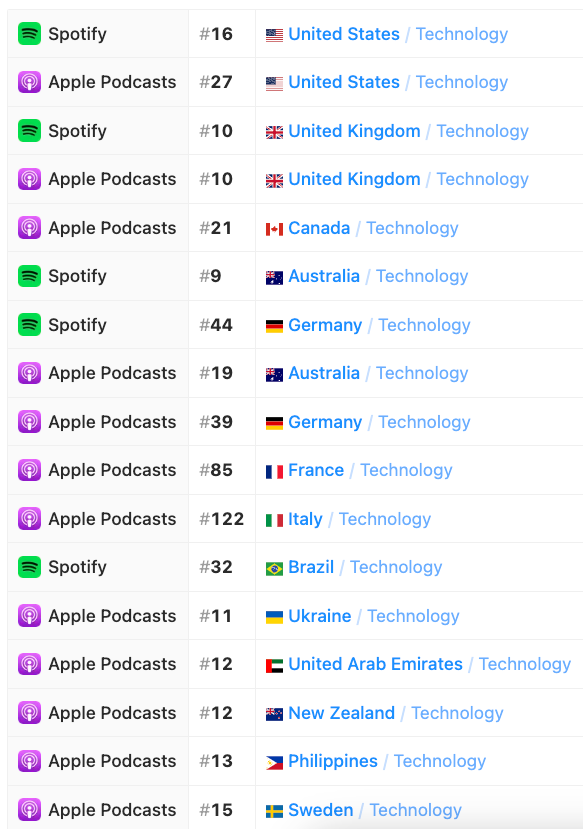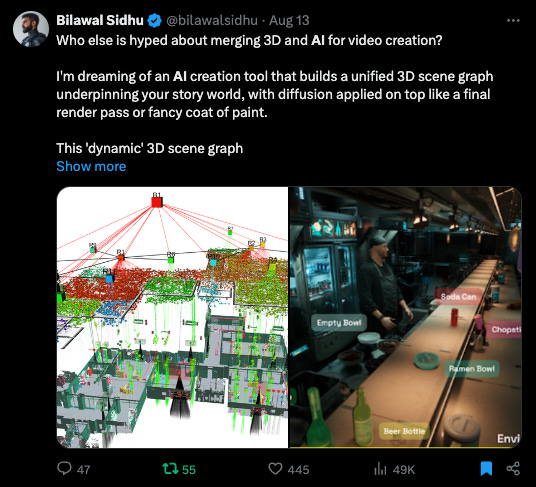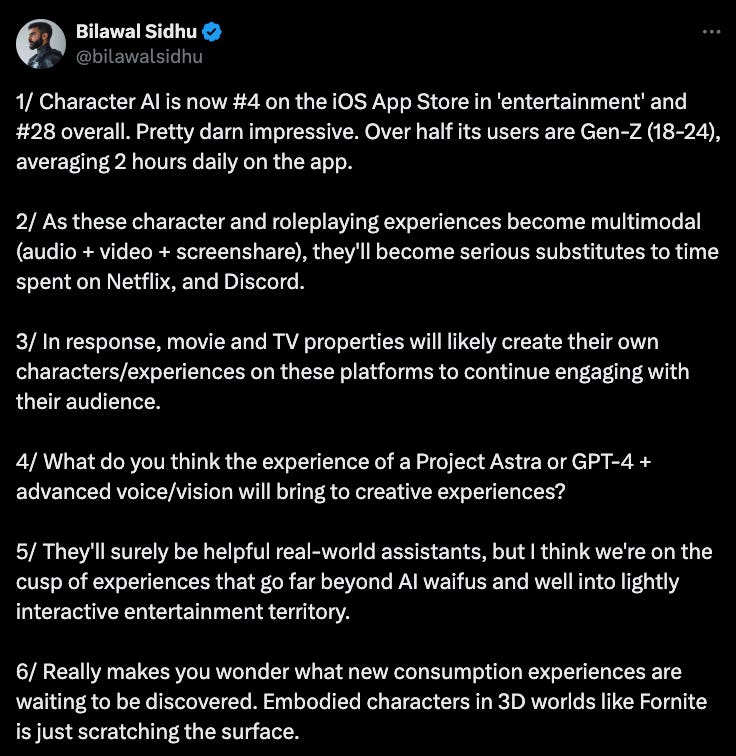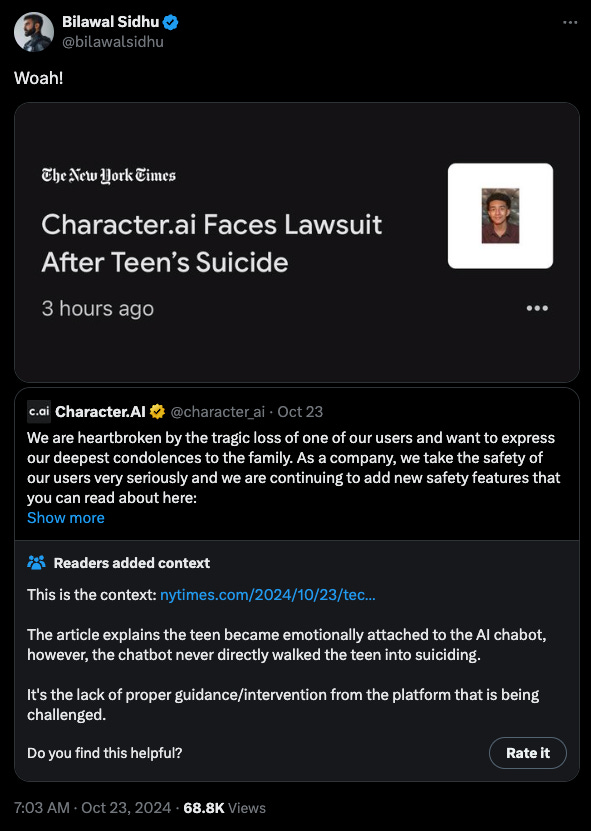Past & Present of AI NPCs: From Gaming to Character AI | The TED AI Show Quick Hits
From Half-Life to ChatGPT-powered characters, how AI is revolutionizing gaming and what it means for our future. Plus, interviews with Perplexity's CEO, Meta's Llama VP, DARPA's AI Director and more.
Hey Creative Technologists,
In this edition we'll explore the evolution and implications of AI NPCs in gaming. Plus, interviews with Perplexity CEO, LLama Product VP, DARPA AI Director and more.
TED AI Show Quick Hits
Pretty exciting to see The TED AI Show is a top 15 tech podcast globally!
Here’s a selection of recent episodes you might enjoy:
How AI is changing national security w/ Dr. Kathleen Fisher (DARPA Director of I2O) (Spotify, Apple, Elsewhere)
Is Google's reign over? The future of AI search w/ Perplexity CEO Aravind Srinivas (Spotify, Apple, Elsewhere)
How Meta wants to create intelligence too cheap to meter with Llama Product VP, Ragavan Srinivasan (Spotify, Apple, Elsewhere)
How open-source AI will reshape power dynamics in tech w/ Hugging Face Co-Founder & CSO Thomas Wolf (Spotify, Apple, Elsewhere)
How AI will transform dubbing in Hollywood w/ Scott Mann, Director and Founder of Flawless AI (Spotify, Apple, Elsewhere)
Deep Dive: From Half-Life to ChatGPT - The Evolution of AI NPCs
Trying my hand at a far more digestable video essay format — though you know me — can’t help but pepper in the technical and product implications. Feedback is very welcome on this new format! Watch the full essay below:
TL;DR The concept of NPCs (Non-Player Characters) has been around since gaming's earliest days, but their evolution has been nothing short of revolutionary. And what lies ahead is perhaps even more exciting.
Let's trace this journey:
1998: Half-Life Changes Everything
Valve's Half-Life wasn't just another FPS – it revolutionized how NPCs could interact with players:
Scientists and security guards had their own routines
Enemy soldiers used squad tactics, taking cover and flanking players
NPCs communicated with each other to coordinate attacks
The difficulty level actually meant something (many players had to dial it down!)
2004: Halo 2's Behavior Trees
Bungie introduced behavior trees for NPC AI, enabling:
More sophisticated decision-making processes
Dynamic tactical changes
Improved enemy flanking and retreat behaviors
Enhanced friendly NPC cooperation
2006: Oblivion's Radiant AI
Elder Scrolls IV brought us NPCs with:
Goal-based decision making
Dynamic daily routines
Sometimes hilariously unexpected behaviors
But all these systems had one thing in common: they were on rails, limited to predetermined actions and responses.
The ChatGPT Revolution
Now we're seeing mind-blowing advancements. Using the same technology behind ChatGPT, developers are creating incredibly dynamic NPCs with:
Unscripted conversations
Natural voice interactions
Dynamic facial expressions
Real personality and memory
3D scene understanding
I recently tested this firsthand with Convai's Unreal Engine demo. The NPC didn't just respond to commands – it understood context, remembered previous conversations, and showed genuine personality. It was uncanny, exciting, and honestly, a bit unsettling.
Once these generative approaches are combined with the fine grain control of 3D engines, we’ll be onto something truly exciting.
The Road Ahead
The question isn't whether this future is coming – it's already here. Character.AI's ranking above Disney+ and HBO Max in the App Store's entertainment category is just the beginning.
At the same time, Character.AI was in the news hit by a lawsuit claiming that the AI character app is responsible for a teen's suicide. Perhaps it makes sense that the founding team exited to focus on foundation model training instead of this category they have product-market fit in, but have many hard product and policy challenges ahead.
There’s no doubt this tech is powerful. We are not far from a future where a fully generative face time call passes the Turing test. The solutions aren’t obvious either. So here’s a few questions I’ll leave you to ponder:
What are the right dials to control these AI character experiences?
How do we prepare for the ethical challenges of convincing AI role play?
How do we moderate these experiences at scale while preserving user privacy?
That's it for this edition. Hit me up with your thoughts, and I'll see y'all in the next one!
Cheers,
Bilawal Sidhu
Connect with me: https://bilawal.in









Wow! Great portfolio—keep them coming.